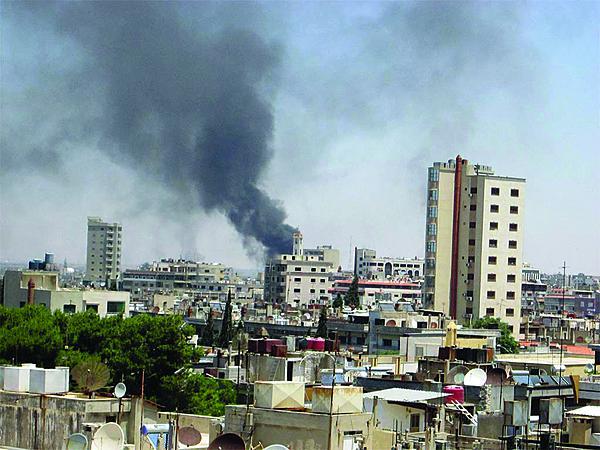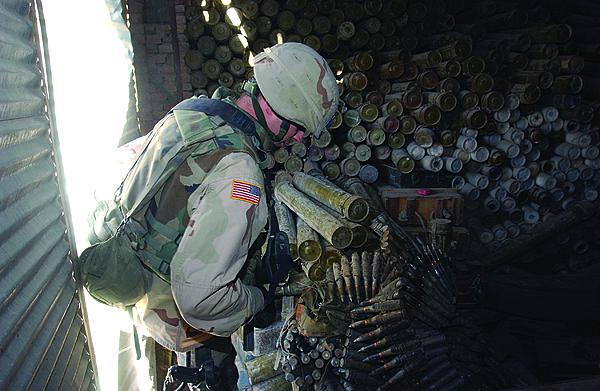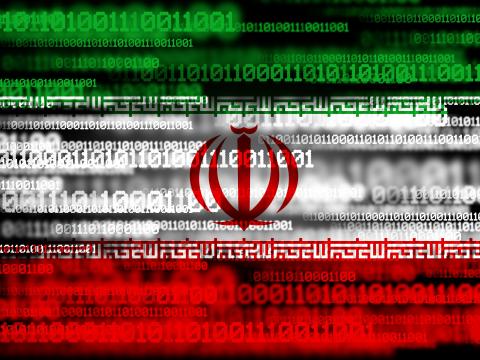Lone Wolf Terrorists Prowl the Balkans
In the coming months, extremists fighting in the Syrian civil war likely will begin returning to Europe, funneling through the Balkans where they can find cheap weapons, like-minded allies and temporary accomplices in the form of organized criminal groups. Conditions are ripe, according to experts, for those individuals to spread across Europe, launching terrorist attacks on major cities.
The Balkans is a unique and complex territory. It contains countries such as Bulgaria, Greece, Romania and Slovenia that are part of NATO and the European Union. Others are members of NATO but not the European Union, and some are members of neither. Furthermore, criminal organizations that engage in drugs and weapons trafficking and even cybercrime flourish in the area. “The Balkans is the only part of Europe where you’ve had recent wars and civil strife,” says Ioannis Michaletos, security affairs analyst, Institute for Security and Defense Analysis, Athens, Greece. “A large part of the region—the western part—is not included in the European Union. It plays a strong role globally in narcotics trafficking,” Michaletos says, adding the area also is a vital link between organized crime structures in parts of Europe and Asia.
European jihadists have traveled to Syria to fight on the side of Islamist militias such as the Al-Nusra front. Michaletos estimates up to 1,000 European Union citizens and up to 700 Balkan Muslims have joined the fight. In the coming months, those fighters will begin returning to Europe. “The war in Syria has changed its tone. Recently, Saudi Arabia proclaimed some of the groups to be terrorist entities and will stop providing them with funds and weapons, so the jihadis will start leaving Syria. A small segment of those will return to their bases, mostly in Bosnia and in Serbia and Kosovo,” Michaletos predicts. “The main issue is—and this is a global issue—the biggest number will go back to Afghanistan, Pakistan and North Africa, and they will cause trouble in a wide area.”
He adds that individual terrorists are the main concern. “The biggest fear is a so-called lone wolf attack—something no security agency can prevent,” Michaletos asserts. “They can recruit more people and propagate radical Islam, and some of these people may stage lone-wolf type attacks.”
In fact, an English language online magazine known as “Inspire,” published by al-Qaida in the Arabian Peninsula, has called for its followers to launch small-scale attacks. The Spring 2014 issue called for car bombings in major cities, and a 2010 issue included instructions for a pressure cooker bomb similar to the one used in last year’s Boston Marathon bombing.
Other experts agree that the so-called lone wolf attack is the most likely threat. “That’s been our assessment for a long time,” says Scott Stewart, vice president for tactical analysis with Stratfor, an Austin, Texas, global intelligence firm. “It doesn’t necessarily have to be a lone wolf. It could also be somebody who is part of a small cell, what we call grass-roots jihadis.”
Michaletos points out that jihadis returning from Syria are now more experienced and potentially more hardened in their ideology. “No one knows how much trouble they can make because they are trained now. They have fought for two or three years. They have accumulated experience, and they are more fanatic, I estimate, than they used to be,” he maintains.
Stewart, on the other hand, acknowledges the threat but to some extent, he also downplays it. “It’s not going to be the zombie apocalypse,” Stewart says, warning that the threat should not be overhyped. “Most of these guys are getting trained in small arms and basic infantry tactics. That doesn’t necessarily correlate with terrorist activity. A lot of the tradecraft you need to conduct a terrorist attack is different from what you need as a member of a rifle squad. Most of them are not getting sophisticated bomb-making training,” Stewart emphasizes.
Still, as those fighters attempt to return, Belgian, British, Dutch and French authorities are likely to block their passage or revoke their passports, leaving them stuck and without employment in the Balkans, Michaletos indicates. “The European Union authorities enforce strict measures to prevent the influx, but the Balkans do not have the capacity to do that,” Michaletos points out. “We have a lot of radicals from the Balkans—citizens of Bosnia or Kosovo—who are already in the Middle East, and it’s easy for them to come back via Turkey. It only takes a day trip.”
The Balkans region also serves as a corridor for illegal immigration from Asia to Europe, and the influx will grow as the humanitarian situation in Syria worsens, Michaletos warns. Already some illegal immigrants have been arrested as terrorists. “We have people from Lebanon, Iraq and Afghanistan who recently came as immigrants, but it was before too long revealed that they were part of terrorist groups, and they were wanted. Of course, they presented fake names, and in some cases, fake nationalities. But they have attacked, for example, international military structures or national structures in their own countries, and then they tried to escape to Europe,” Michaletos reports. “This is another threat on another level.”
While the number of known cases is not great, Michaletos reports the numbers are higher than the public realizes. “Officially, there are a few cases, but I can tell you that unofficially, there are dozens. Most of the information is confidential in nature, and when you have international terrorism, especially in the Balkan countries, authorities are not keen to reveal information,” he says.
Adding to the mix, according to Michaletos, will be the easy availability of weapons flowing from the Libyan black market to organized crime syndicates in the Balkans as the war in Syria winds down. The prices of automatic weapons, anti-aircraft weapons and plastic explosives will drop dramatically, he forecasts. “If someone wants to find weapons, he’ll go to the local mafia,” he says.
In fact, various groups, including Islam extremists and crime syndicates, work together at times. “All of them are cooperating, but they don’t do that as an alliance with a solid structure; they do this depending on the tactical aims. There is no strategic structure. It’s all tactical. It’s ad hoc,” he says.
This isn’t the first time jihadi fighters returning from war have funneled through the Balkans, Stewart points out. “This really is not a new issue. It’s one that has been around since the Mujahedeen were fighting against the Soviet invasion in Afghanistan. The big difference today, though, is that back in the 1980s people weren’t talking about this potential problem,” Stewart says. “And the problems that cropped up because of it—things like the 1993 World Trade Center bombing—caught the U.S. government by surprise.”
Both Stewart and Michaletos agree that governments are aware of the situation, but Michaletos says awareness does not necessarily equal action. “There are intercontinental forums in the Balkans, with the cooperation of the European Union, the United States and the United Nations and so on. All these forums are politically made to facilitate the exchange of information in all countries. The problem is they don’t function as they should,” Michaletos contends, recommending enhanced information sharing between authorities and joint task forces as well as more investment into understanding developing trends. “This is feasible. It only takes political will to achieve this goal. The politicians in the region are not really interested. It is not high on the agenda. A change in mentality is needed.”
Stewart adds that some governments take advantage of the situation. “Some of the countries still believe they can use these guys as proxies. A lot of the Sunni governments still think they can work with good jihadis as opposed to bad jihadis to try to bring down Assad,” Stewart explains, referring to Bashar al-Assad, president of Syria. “At the same time, some of these governments see this as a convenient way to get rid of some of their troublemakers. It’s better to send someone to die in Syria than it is to have him pulling some shenanigans at home. The problem is that they come back more radicalized and better trained.”
Michaletos stresses the need to raise awareness. “In today’s world, we have to be extremely vigilant. It’s very important to pinpoint what lies ahead instead of analyzing what happened. That takes a bit of investment by society and politicians because the threats are evolving very fast,” he concludes.






Comment
"Inspire" magazine is put out
"Inspire" magazine is put out by Al-Qaida in the Arabian Peninsula (AQAP), not by al-Qaida in the Pacific.
Corrected, thank you!
Comments